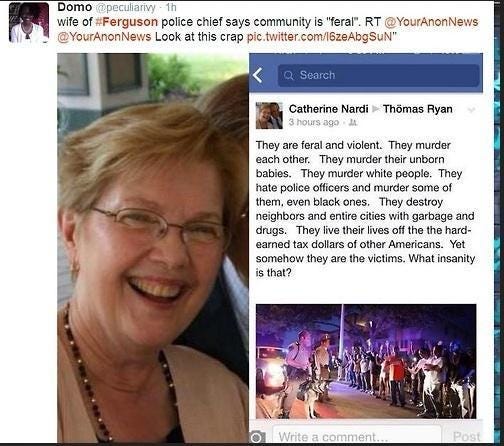We Need To Talk About Ferguson
When I was younger, I loved reading about American history. The saga of a small group of freedom-minded individuals banding together and fighting for their liberty against the heavy-handed repression of an authoritarian global power is pretty incredible, when you think about it. Not only that, but the government structure they envisioned at the time — a system of checks and balances, individual rights, and an empowered population — is still in existence. That’s a powerful story.
Of course, these American history books covered the bad times and the mistakes as well — at least in passing. The narrative of how we conquered the West would usually include a whole paragraph (or two!) about the Trail of Tears, and the tale of how we became a global force for democracy in WWII would briefly mention our internment of Japanese Americans. As we moved into the 20th Century, whole chapters would be devoted to Martin Luther King Jr., Malcolm X, segregation, Brown vs. the Board of Education, the Civil Rights Act, the battle against institutionalized racism, and so forth. The implication was always clear, though: sure, we made mistakes, but those mistakes are in the past now. We’ve beaten these threats to equality and freedom. We’ve moved on.
Naively, I moved on too. It’s one thing to be cognizant of the statistics: black men are being arrested in grossly disproportionate numbers; there are significant disparities in income, education, and socioeconomic mobility by race; people who aren’t white have significantly less trust in law enforcement, etc. But these are just numbers. I’ve never been arrested. I’ve never been stopped and frisked. I’ve never been followed around in a store because I “looked suspicious” (I was followed around in an Armani store once, but that’s because I looked like the type of person who wouldn’t be able to pay for a necktie if I spilled my slushie on it.) In short, my awareness of racism has been intellectual, not personal.
All this is to say, I don’t really know how to address racism on an institutional level. I certainly don’t feel qualified to speak about it. When a friend tells me about their fear of law enforcement due to experiencing injustice at the hands of a police officer, I feel helpless to respond appropriately — both of us are painfully aware of the fact that I can feel sympathy, but not empathy. I’ve never walked in their shoes. And so, by and large, I haven’t said much about racial issues in America.
What’s happening in Ferguson right now, though, has utterly hit me in the gut. Ferguson 2014 looks just like Birmingham 1963:
I thought that we, as a nation, had moved past this. I was utterly, blatantly, miserably wrong. I haven’t fully sorted out all my emotions here yet, but the two most overwhelming feelings I have right now are shame and frustration. Shame that I’ve let this fade to the back of my consciousness, and frustration because I feel like there’s so little I can do about it.
People like this make me ashamed to call myself a human being, let alone an American citizen. We can talk about violations of First Amendment rights and press freedoms (happening in Ferguson), the militarization of police forces (happening in Ferguson), the lack of community representation in predominantly white police forces (happening in Ferguson), or a myriad of other problems. I can’t directly do anything about that. What I can do is let people like Catherine Nardi know that they don’t speak for me. I utterly reject a worldview that ends up calling human beings “feral.”
I haven’t spoken up enough for what’s right, and for that I am deeply sorry.



